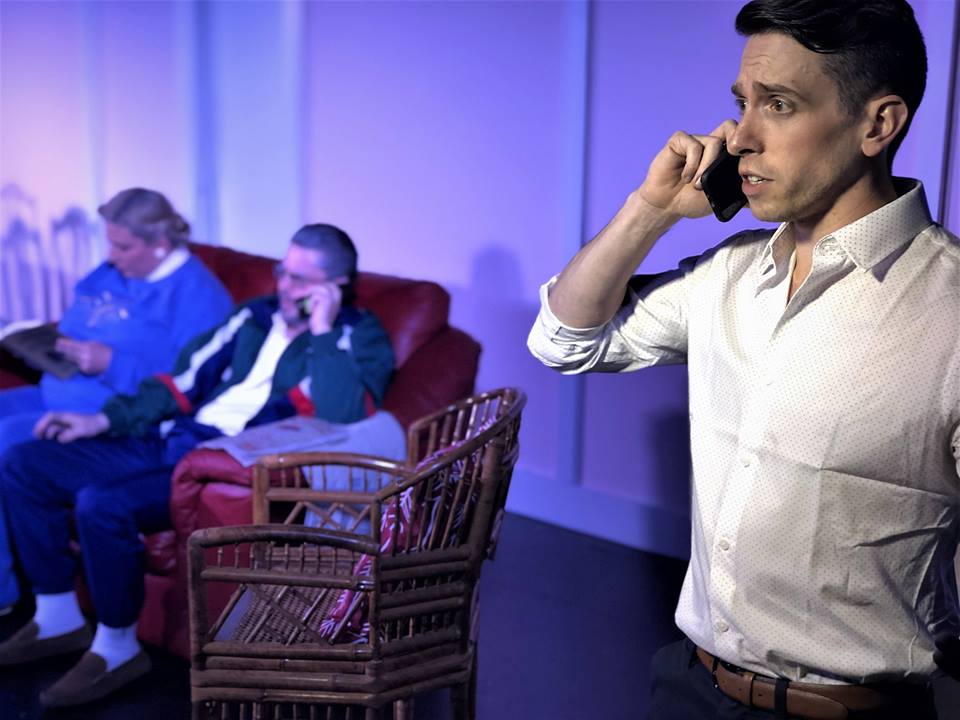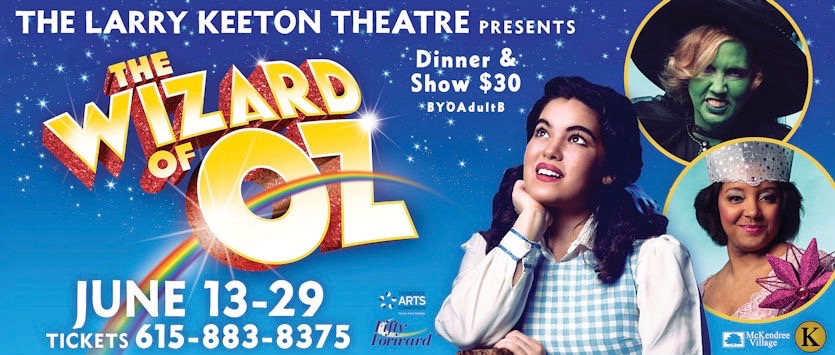
When you consider the fact that L. Frank Baum’s beloved The Wizard of Oz was originally released in book form in 1900 and the equally-iconic MGM musical movie adaptation itself is celebrating it’s 80th anniversary this year, it’s really no surprise that all things Oz continue to be just as mesmerizing all these years later. Proof that the story of young dreamer Dorothy Gale’s first visit to the enchanted Land of Oz is still an audience favorite is evident in the fact that The Larry Keeton Theatre opened their production of the stage adaptation earlier this week with shows continuing at the popular Nashville area dinner theatre, with performances continuing through June 29.
To celebrate Opening Weekend, I recently had an opportunity to chat with the show’s director, Jef Ellis as well as four members of his cast including Emma Brown, who plays Dorothy, J. Robert Lindsey, who’s cast as The Tin Man, The Cowardly Lion’s Sara Kistner and Thomas Gentry, who’ll be performing the role of The Scarecrow for an All-In, All-Oz Rapid Fire 20 Q.
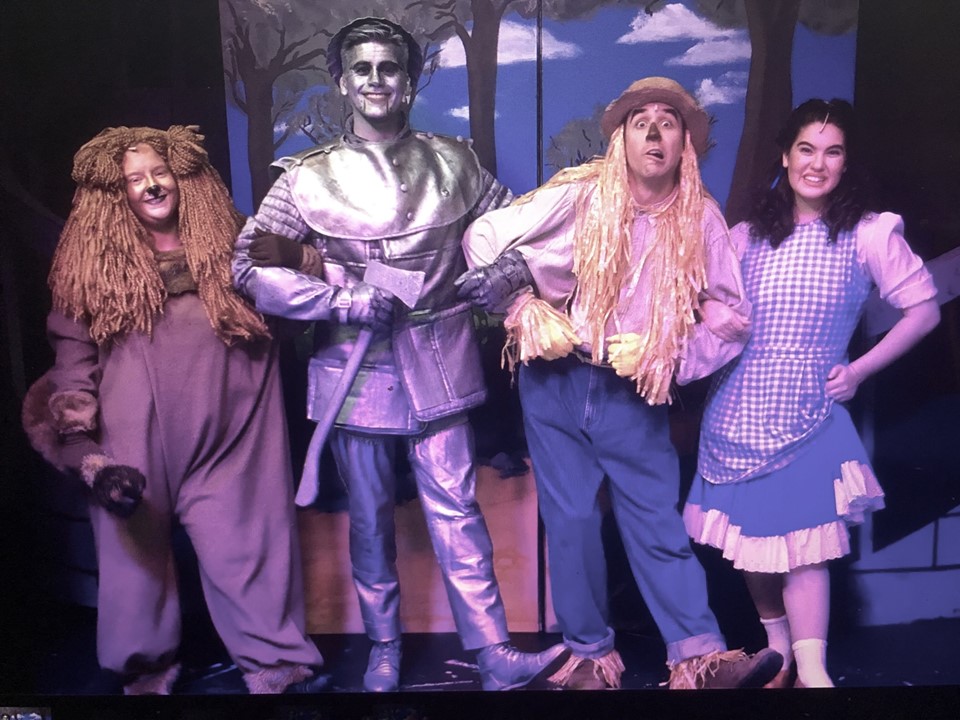
———————————————
RAPID FIRE 20 Q WITH DIRECTOR & CAST OF THE LARRY KEETON THEATRE’S THE WIZARD OF OZ
RAPID FIRE WITH THE WIZARD OF OZ DIRECTOR, JEF ELLIS
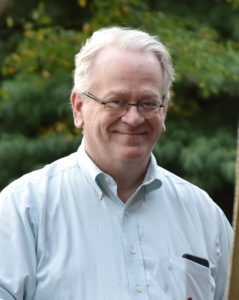 JHP: What’s your first memory of The Wizard of Oz?
JHP: What’s your first memory of The Wizard of Oz?
JEF ELLIS: I grew up as part of a generation who watched the movie on TV once a year and my earliest memory is being scared to death of those flying monkeys. In fact, we’d have to switch off the TV every time they made an appearance. I don’t think I ever saw the entire film until I was well into adulthood and could manage my flying monkey phobia with grace.
JHP: Having interviewed you in the past, I’ve noted that whenever you direct a piece that’s as beloved for its cinematic adaptation as it is its stage version, you always manage to pay homage to the Hollywood incarnation. Can you reveal, or at least tease, how you’ve achieved this with this production of Oz?
JEF ELLIS: The script is very much like the screenplay, down to the stage directions. But because I love classic films of this particular era, I have chosen to honor the golden age of Hollywood — specifically 1939 — with some of the expected tropes of moviemaking of that time and when I’ve talked about it with my cast members, I’ve often used references to the stars of that era and we’ve attempted to give the Kansas scenes a sense of classic black-and-white filmmaking and acting for the camera. It is subtle, but it’s there and it helps inspire my talented cast.
JHP: What aspect of this production has brought you the most joy as a director?
JEF ELLIS: Believe it or not, it’s working with young actors, particularly the very young actors who play a variety of roles from Munchkins to Ozians to the Wicked Witch of the West’s flying monkeys. Introducing this beloved film to a new generation is both an awesome and daunting experience. When we first started, I felt rather at sea insofar as what I was striving to do with this particular show, but one day during rehearsal, I restaged the Act One finale (the approach to the Emerald City after the experience in the field of poppies) and it suddenly dawned on me what the show is actually about and how impactful it can be on audiences, whether they are veterans like me of seeing the movie annually for years and years or if they are only just now being exposed to it.
JHP: Why does The Wizard of Oz endure?
JEF ELLIS: To my way of thinking, it’s a uniquely American fairy tale — the story of one young girl’s search for who she really is and what is most important to a life well-lived, told in a distinctly American way. I think far too often The Wizard of Oz becomes the focus of academics who try to foist their own meaning upon the story — and lord knows, I love that kind of stuff — but when I read more about L. Frank Baum and what he was trying to do, it opened up vast new vistas for me as far as storytelling is concerned. To me, the best thing about live theater is its ability to transport and to transform and there is perhaps no show I’ve directed in my career that better subscribes to that belief. The Wizard of Oz is the quintessential American fairy tale that instantly whisks audiences away to a vividly imagine world quite unlike any you might imagine on your own. Because of that, the story is timeless and we can all find something about it with which we might identify.
RAPID FIRE WITH EMMA BROWN, DOROTHY GALE IN THE WIZARD OF OZ
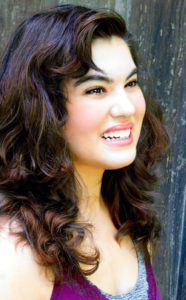 JHP: Frank Baum’s The Wizard of Oz is easily one of the most beloved stories ever. What’s it like to be cast as Dorothy Gale?
JHP: Frank Baum’s The Wizard of Oz is easily one of the most beloved stories ever. What’s it like to be cast as Dorothy Gale?
EMMA BROWN: If you play an iconic character, comparisons to the original are inevitable. That kind of pressure is an exciting challenge because it’s all about bringing some of the magic from the classic to the stage. A little magic and a lot of dog treats.
JHP: Arguably, the 1939 film adaptation is just as popular, if not more so, than the classic novel. Were you a fan of either incarnation before auditioning for this production?
EMMA BROWN: We had The Wizard of Oz movie on VHS when I was little, and I used to rewind the scenes and act them out alongside the TV. One of my favorites was throwing myself off our couches to reenact when Judy Garland falls into the pig pen. Unfortunately, the stage version does not have that scene, because I would have been thoroughly prepared.
JHP: While researching to chat with you and your fellow Ozians, I ran across a recent Oz-related post on your social media in regards to your recent birthday. Care to share what your parents did to celebrate your birthday and you being cast as Dorothy?
EMMA BROWN: My mom labeled yellow napkins with letters that said, “Follow the Yellow Brick Road,” and she put them on the floor leading to the kitchen, where my Dad hung a Wizard of Oz poster that he drew himself. It had the Lion, Scarecrow, Dorothy, Tin Man, the Emerald City, apple trees, rainbows, it was incredible. The thoughtfulness of those two almost made up for the fact that Dad used up all my markers.
JHP: Somewhere Over the Rainbow is simply iconic. Do you have a favorite phrase amongst the lyrics that kind of gets you every time you sing it?
EMMA BROWN: “…And the dreams that you dare to dream, really do come true…” I love that lyric for two reasons: it speaks to anyone with passion, ambition, and hope, and it’s the only place in the song where I get to breathe.
RAPID FIRE WITH THOMAS GENTRY, THE SCARECROW IN THE WIZARD OF OZ
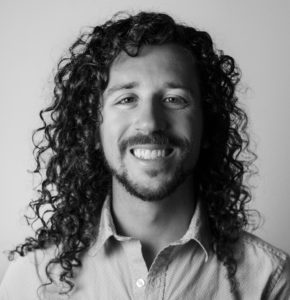 JHP: Which of The Scarecrow’s characteristics do you share—or would you love to adopt?
JHP: Which of The Scarecrow’s characteristics do you share—or would you love to adopt?
THOMAS GENTRY: Oh man, The Scarecrow and I have more in common than I ever realized. Perhaps the most obvious might be my general absent-mindedness (yeah yeah, pun-intended). Ask anyone who’s ever tried to leave the house with me; I can NEVER find my keys, wallet, phone, etc. Also, like the Scarecrow, I’m an external processor so I often put my foot in my mouth by spewing unfiltered babble or asking questions with obvious answers. I will say however, that I admire the Scarecrow’s unwavering and selfless love and support of Dorothy. To me that’s a very endearing characteristic of the Scarecrow and something that I’d like to demonstrate in any friendship.
JHP: Alright, I just gotta say…with your hair, did you initially audition for The Cowardly Lion? Because your mane is epic! But on to my real question….The Scarecrow is surprisingly a very physically demanding role. Do you have a dance background?
THOMAS GENTRY: Haha, ya know, I didn’t. But it’s been brought to my attention that I perhaps should have. Maybe I’ll lop it off for Sara, our Lion, to make a wig out of. Anyway, you are not lying about the Scarecrow being a physically demanding role. After being cast, I began watching so many different performances where the Scarecrow was doing full splits and jazz pirouettes. I thought, “uh oh.” But I do have a background of basic ballroom dancing and a shameless enthusiasm to brave any dance-based aerobics class no matter how outnumbered I am by middle-aged moms. Throw that in with a history of various board sports that have taught me how to roll and fall and I’d say I’ve attempted to adapt the part to the floppiest, most energetic version of my skill-set. Knee pads help a lot too.
JHP: One of my absolute favorite Scarecrow lines is, “Some people without brains do an awful lot of talking, don’t you think?” Given today’s social and political climate, do you expect to get big reactions from that line?
THOMAS GENTRY: I know, right? When I first read the script I thought “Oh my gosh, how did they know?” It just seemed perfectly timed. A little more research led me to the fact that the L. Frank Baum’s 1900 novel The Wonderful Wizard of Oz was always intended to be somewhat of a political allegory. Much of the allegorical structure remained in tact in the beloved 1939 film which popularized the line in question. The genius of this line is that it will always be relevant no matter who’s doing a lot of talking or who’s in power at any given time. That said, I, like every person who has heard this line since 1939, do think it seems most applicable considering today’s social and political climate and I certainly hope for big reactions from that line.
JHP: While this interpretation of The Wizard of Oz follows the 1939 film adaptation very closely, one sequence that was cut from the film, The Jitterbug, was added back to this stage version when it was first produced by the Royal Shakespeare Company In 1987. What can you tell me about this number and the show’s choreography as a whole?
THOMAS GENTRY: Initially, it seemed that much of the cast had a love/hate relationship with this number. Ya know, no one’s really heard it, it’s not exactly a crowd favorite upon first listen, and it’s certainly not the 80’s Wham hit that I first think of when I hear Jitterbug. That said, it’s one of only two instances where the leads get to sing and dance with the entire ensemble, so The Jitterbug is actually key during the second act to give the audience a little something spicy and fun featuring almost the entire cast. And ya know what? It’s actually become a pretty cool number. Our choreographer, Kevin Raymond, has really turned it in to something nice. He’s done a great job of adapting the film’s choreography to the stage, while still maintaining the look and feel of the film’s original dance numbers that the audience expects to see.
RAPID FIRE WITH SARA KISTNER, THE COWARDLY LION IN THE WIZARD OF OZ
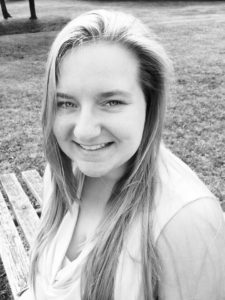 JHP: The Cowardly Lion is typically played by a male, so…are you playing the role as a gender-flip? non-binary? or in male drag?
JHP: The Cowardly Lion is typically played by a male, so…are you playing the role as a gender-flip? non-binary? or in male drag?
SARA KISTNER: The best way to describe the way I am playing the Cowardly Lion is a mix of gender flipping and non-binary factors. I know it is difficult to technically do both, but we changed words like him to her and king to queen, but I am trying to remain true to the Cowardly Lion as everyone knows “him”. I play the Lion with a deeper voice but Queen of The Forest may catch you by surprise. I am using that gender battle of Men are tough and Women are gentle and trying to place myself amongst the other characters to really play up each of the Lion’s hurdles with courage.
JHP: When playwright John Kane and the Royal Shakespeare Company revisited the story of Oz for this iteration’s debut in 1987, the costumes were based on a combination of both the original illustrations by William Wallace Denslow from the 1900 1st edition of Baum’s book and Adrian Adolph Greenberg’s legendary costumes designed for the 1939 film adaptation. Who designed the costumes for The Keeton’s production and what’s your favorite aspect of them?
SARA KISTNER: Our costume designer Cary Street, is recreating Glinda, Dorothy, Tinman, Scarecrow, and Lion as we all remember them whether it is the film or the stage adaptation, while taking our ensemble and giving them some flare and originality. My favorite aspect of our costumes would have to be the color scheme for our ensemble members, everyone pops in their own way on stage!
JHP: Earlier this year you worked with Jef as a member of his cast of Singin in the Rain and now in Oz. While composing questions to ask you and your fellow Yellow Brick Roadies, it dawned on me, Jef is a bit like the Wizard isn’t he? I’m curious…in the spirit of Oz, what’s something surprising you’ve learned about Jef…behind the magic curtain?
SARA KISTNER: Jef is in fact a lot like Oz, he goes wherever the wind takes his balloon. We all know Oz as this big scary spectacle of a being that no one really knows much about other than the obvious, I believe that is true for Jef as well, to a degree. The way Jef directs is very much straight to the point, and we as his cast are to follow his instructions in order to reap our rewards. The difference between Jef and Oz is, Oz is pretending to be something he is not, Jef remains true to himself and his demands are for the best of the production he is working on at the time. Once the cast has completed their tasks and we begin the run of our show, that is when Jef comes out behind the curtain we receive our motivational speech and the wind takes him on to his next adventure.
JHP: The Cowardly Lion seeks courage. What does courage mean to you?
SARA KISTNER: I believe Courage is not defined by one specific thing. Courage can be as simple as facing the day when all you feel is dread, it is going out and walking with the masses whether you are a feminist, a member of LGBTQ, Black Lives Matter, or even serving the United States Military. You never know what each day may bring you, but facing each day with everything you have in your soul not knowing what may be waiting for you, that is true courage.
RAPID FIRE WITH J. ROBERT LINDSEY, THE TIN MAN IN THE WIZARD OF OZ
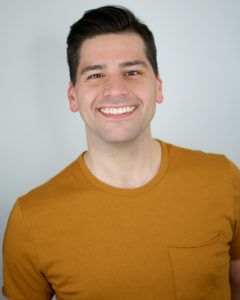 JHP: Prior to being cast as The Tin Man, how familiar with this particular adaptation, which debuted on stage in 1987, and more closely follows the classic film than other stagings?
JHP: Prior to being cast as The Tin Man, how familiar with this particular adaptation, which debuted on stage in 1987, and more closely follows the classic film than other stagings?
J. ROBERT LINDSEY: I had the opportunity to play The Tin Man (and his farmhand counterpart, Hickory) in college. We did this adaptation as well, so I was pretty familiar with this particular version. As a child, I was obsessed with the movie, so having the chance to play this role in a version that so closely follows the film not only once — but twice — has been such an honor.
JHP: This mounting of The Wizard of Oz marks how many times you’ve worked under the direction of Jef? What keeps you coming back to audition when he’s at the helm?
J. ROBERT LINDSEY: Wizard is the fourth time I have worked under Jef’s direction. I first met Jef when I played Cliff Bradshaw in his production of Cabaret followed by My Fair Lady (as Freddy Eynsford-Hill) and The Boys in the Band (as Larry). What I love about Jef as a director is that he comes into the rehearsal process with a very clear vision. As an actor, it’s great working with a director who knows exactly what he wants out of you. Jef also does a wonderful job of recreating classic films on stage. In this particular show, he pays homage to the 1939 film as well as the original novel while simultaneously adding some twists and turns along that way that audiences have never seen before.
JHP: Among the lyrics of The Tin Man’s famed If I Only Had a Heart is the line, “Just to register emotion, jealousy, devotion and really feel the part”. At what point during the rehearsal process did you ‘really feel the part’ as far as finding YOUR The Tin Man?
J. ROBERT LINDSEY: Having played this role before, I didn’t want to cop out and recreate the same exact performance. The stage version dives into some of The Tin Man’s backstory. For The Tin Man, a heart represents the life he knew before the Wicked Witch enchanted his axe and subsequently turned him into tin. During one of our rehearsals, we were running the scene where the Tin Man shares his story with Dorothy and the Scarecrow. As the words were coming out of my mouth, I really thought about how heartbreaking (no pun intended) his story is and how that fuels this journey he goes on. For me, that’s when this incarnation of the Tin Man started to evolve.
JHP: Among the many themes of Oz, Family is key, whether it’s the family we’re born into or the family we choose. I hear actors say over and over that their casts become family. Why do you suppose that is?
J. ROBERT LINDSEY: So many of the stories we tell in theatre are centered around relationships. As the cast dives into creating their own characters and developing the relationships they have with the other characters in the show, it’s hard to completely separate yourself as an actor. It’s an emotional journey and requires a lot of energy, and the only people who can relate are the ones in the show alongside you. It truly fosters a sense of family – which is one of my favorite aspects of theatre.
———————————————
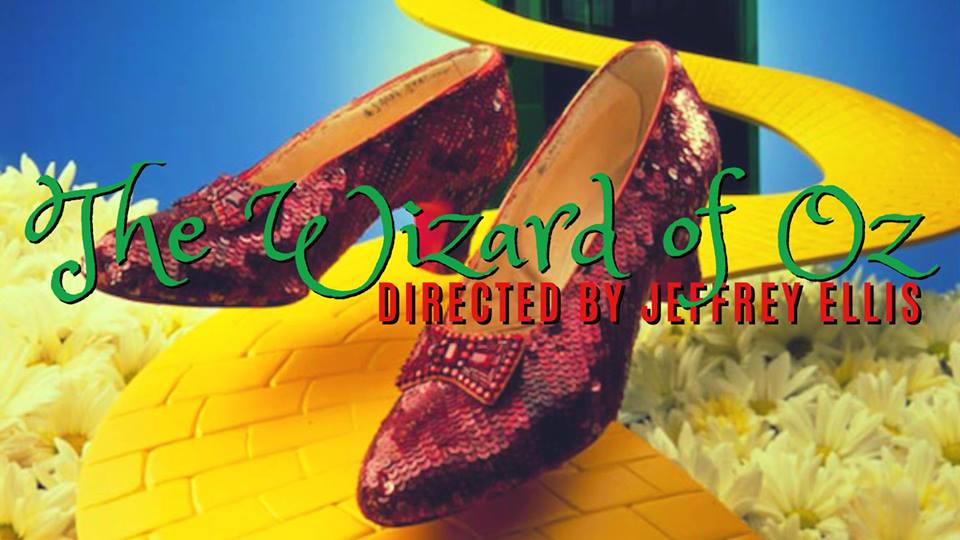 The Wizard of Oz at The Larry Keeton Theatre continues with shows thru Saturday, June 29. Thursday-Saturday shows begin at 7p.m. with Sunday matinee curtain at 2p.m. Dinner and Show tickets are available for $30 for Adults and $20 for Children 12 and Under. Show Only Tickets are available for $25 for Adults or $15 for Children 12 and Under. Unlike Dorothy, you don’t need a flying house, a bubble-hopping good witch, a hot air balloon or even ruby slippers to visit, but you do need to CLICK (just one time)….CLICK HERE for tickets.
The Wizard of Oz at The Larry Keeton Theatre continues with shows thru Saturday, June 29. Thursday-Saturday shows begin at 7p.m. with Sunday matinee curtain at 2p.m. Dinner and Show tickets are available for $30 for Adults and $20 for Children 12 and Under. Show Only Tickets are available for $25 for Adults or $15 for Children 12 and Under. Unlike Dorothy, you don’t need a flying house, a bubble-hopping good witch, a hot air balloon or even ruby slippers to visit, but you do need to CLICK (just one time)….CLICK HERE for tickets.
To keep up with the latest from The Larry Keeton Dinner Theatre, follow them on Facebook, Twitter and Instagram.
If you’ve enjoyed this installment of my recurring interview feature,be sure and check out previous conversations at Rapid Fire 20 Q. Interested in coverage for your latest entertaining endeavor? Click the contact page and drop me a note. You can also follow JHP Entertainment on Instagram and Facebook.

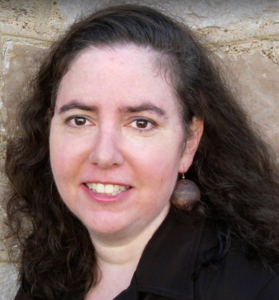 JHP: What’s your play about?
JHP: What’s your play about?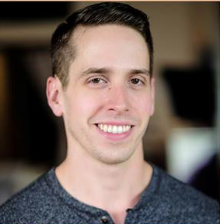 JHP: You play Alan. How would you describe him?
JHP: You play Alan. How would you describe him?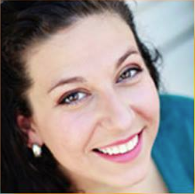 JHP: Tell me about Ida.
JHP: Tell me about Ida.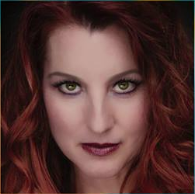 JHP: Who is Abbie?
JHP: Who is Abbie?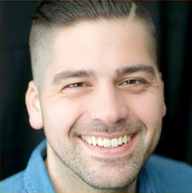 JHP: You’re cast as Howard. What’s the best way to describe him?
JHP: You’re cast as Howard. What’s the best way to describe him?